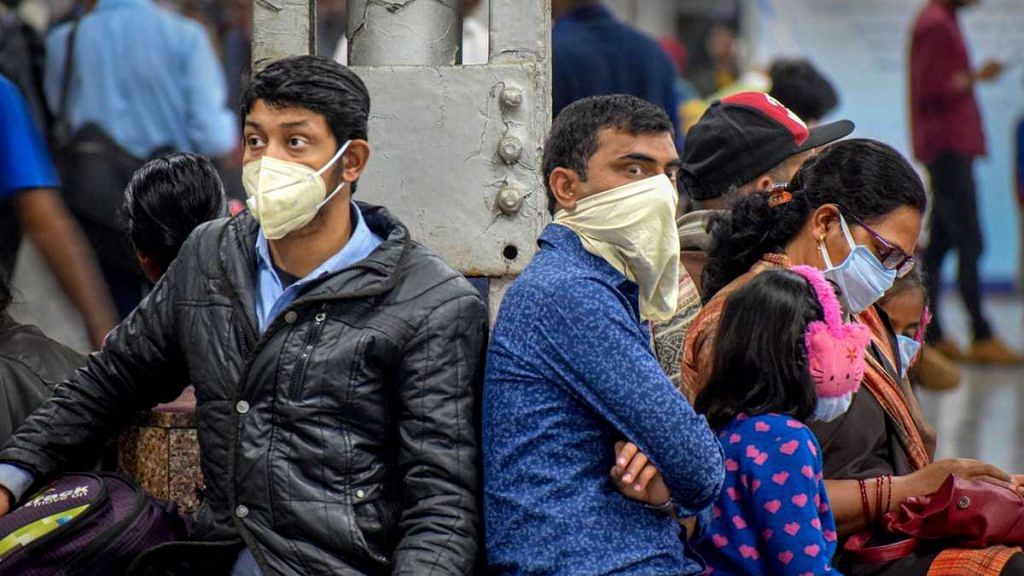New Delhi: People infected with the novel coronavirus may spread the infection to others even before they display any symptoms, a new study suggests.
A team of researchers from US, France, China and Hong Kong has found that the virus takes less than a week to transmit from one person to the next, spreading as fast as the flu and thus requiring a quick and aggressive response to curb it.
The research also found that more than 10 per cent of patients were infected by somebody who had the virus but did not show symptoms yet — known as pre-symptomatic transmission.
The team calculated what is known as the serial interval of the virus — the time taken for symptoms to appear in a patient and the person they infect.
The average serial interval for the novel coronavirus in China was approximately four days. In contrast, the average serial interval for the Ebola virus is several weeks.
Also read: How bad is coronavirus? Let’s compare with SARS, Ebola, Flu
Need for speed
According to the team, the speed of an epidemic depends on two things. The first is the reproduction number, which describes how many people one patient infects on an average. The second is the serial interval.
The short serial interval of COVID-19 means emerging outbreaks will grow quickly and could be difficult to stop, the researchers said in a statement.
“Ebola, with a serial interval of several weeks, is much easier to contain than influenza, with a serial interval of only a few days,” said Lauren Ancel Meyers, a professor of integrative biology at University of Texas in Austin.
“Public health responders to Ebola outbreaks have much more time to identify and isolate cases before they infect others,” said Meyers, who was part of the research team.
“The data suggest that this coronavirus may spread like the flu. That means we need to move quickly and aggressively to curb the emerging threat,” she added.
Also read: Older people most at risk from COVID-19. This is what you can do to help
Extreme measures required
Over 450 infection case reports from 93 cities in China were examined as part of the research, which was funded by the US National Institutes of Health and the National Natural Science Foundation of China.
The research provides strong evidence for pre-symptomatic transmission — more than 1 in 10 infections were transmitted by people who didn’t show symptoms yet.
“This provides evidence that extensive control measures including isolation, quarantine, school closures, travel restrictions and cancellation of mass gatherings may be warranted,” Meyers said.
Asymptomatic transmission definitely makes containment more difficult, researchers warn.
“Our findings are corroborated by instances of silent transmission and rising case counts in hundreds of cities worldwide,” Meyers said.
Currently, over 1.71 lakh people have been infected with the novel coronavirus across the globe, with the epicentre of the pandemic shifting from China to Europe and hundreds of new cases continuing to emerge.
Also read: Why doctors in Italy are letting some coronavirus patients die to save others
